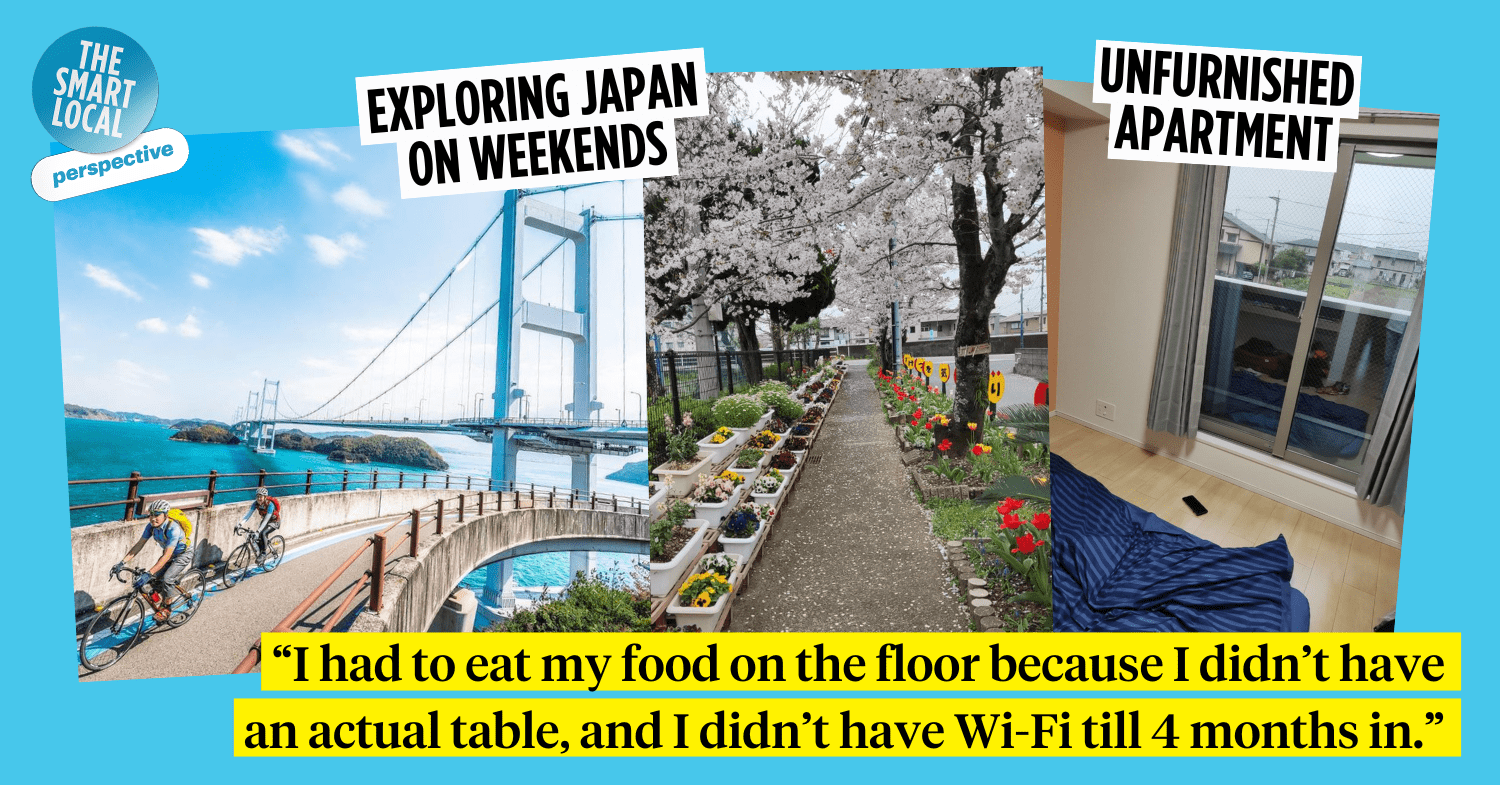What it’s really like moving to Japan for work
“Eh guys, I got accepted sia, gonna move to Japan to work for real.”
The actual message was accentuated with expletives, but when Johnson*, one of my closest friends broke the news to the group chat that he was accepted into the JET (Japan Exchange and Teaching) Programme, we couldn’t be any happier for him.
For months, the guy has been calling for online meetings with the rest of our friend group to proofread his personal statements and go through his resume with a fine-tooth comb. So, when he finally got the go-ahead in the form of his acceptance letter, it was pretty surreal seeing his hard work pay off; our boy was on his way to Japan for work.
Here’s a snippet of Johnson’s life in Japan, from the highs of touring the country during his free time, to the lows of dealing with overwhelming loneliness during his first months.
*Names have been changed to maintain confidentiality.
Heading overseas for a first full-time job after university
Understandably, Johnson’s parents were shocked when he told them his overseas stint had now become a reality. They knew beforehand that he was going for the interviews for the JET Programme, but it didn’t really sink in that he was about to leave the metaphorical nest until he started going for the health checks and getting all the relevant paperwork done.
“I think they were a bit apprehensive at first, like is he going to be okay living by himself overseas, but overall they were really supportive,” he said. Being friends with Johnson for over a decade now, it was tough knowing that we wouldn’t be able to meet up anytime soon, but we still gave him our best wishes before he flew off.
But, what was it that compelled Johnson to take on his first post-graduate full-time job in an entirely different country, and what exactly is the JET Programme?
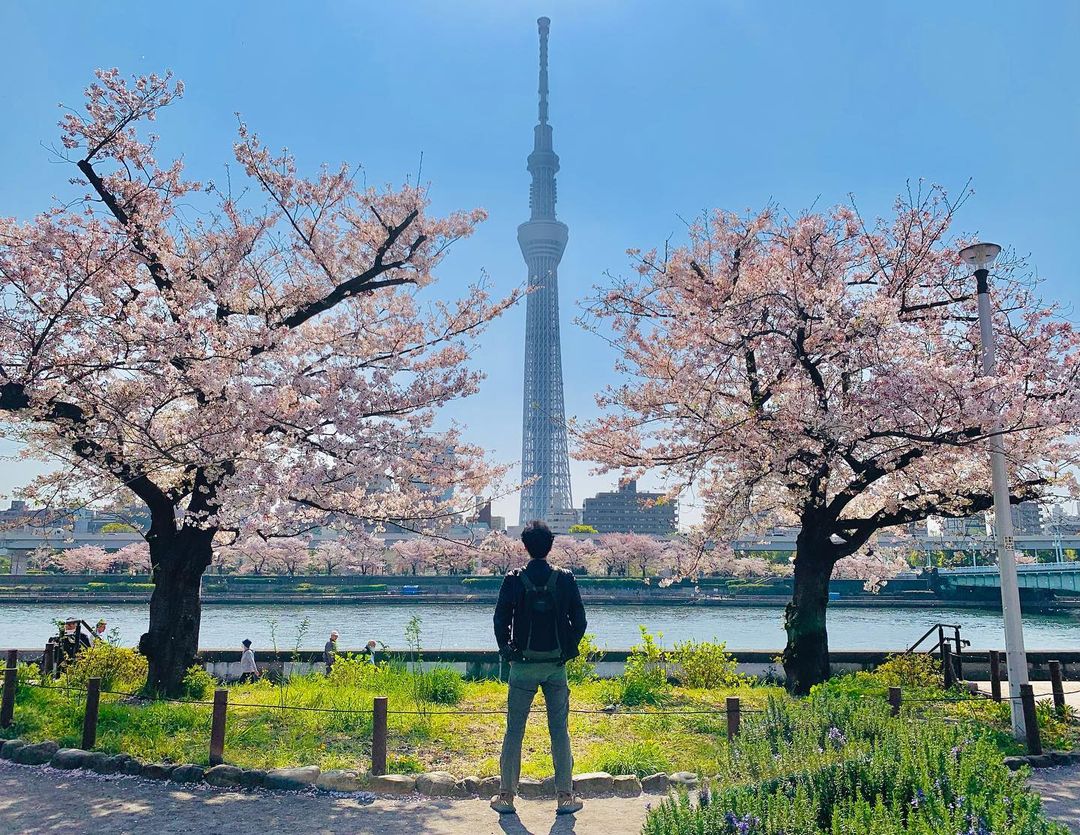
Image credit: @winneuro via Instagram
Image for illustrative purposes only.
“I think I was really interested in Japan before. I was studying Japanese as a hobby and I just wanted to be better at it,” Johnson added. He’s surprisingly fluent in the language, and he even dabbled in some unofficial translation work for his favourite Japanese singers. But, what better way to master the language than to head to Japan to use it on a daily basis?

YouTuber Abroad In Japan was probably the main inspiration for Johnson’s decision to work in Japan, as he was also previously under the JET Programme.
Image credit: @abroadinjapan via Instagram
A big inspiration for Johnson also came from a particular YouTube channel. Unfortunately, it wasn’t The Smart Local’s, but he was exposed to the idea of working in Japan through a British bloke doing just that – he who goes by Abroad in Japan on YouTube. The JET Programme was also brought up by his lecturer during his time in school, and so his mind was made up.
Here’s more on the JET Programme: it’s a teaching programme sponsored by the Japanese government which gives university graduates a chance to fly over to Japan, to take up an Assistant Language Teacher (ALT) role for up to a maximum of 5 years.

Image credit: Embassy of Japan in New Zealand
“In Japanese schools, there’s usually a main teacher, and we as ALTs help out in the classroom. We help out with stuff like making materials for classes, or making activities or little games to teach grammar, and we mostly just teach English,” explained Johnson.
In total, he’s been an ALT for 2 years in the Kumamoto prefecture of Japan, and currently works at a total of 4 different elementary and junior high schools.
Struggles of settling down in a foreign land
We all know how enamoured Singaporeans can be with Japan; for some reason, our fellow countrymen cannot get enough of its scenic train rides and countryside farmstays. Many might jump at the chance to live and work there, but it wasn’t a bed of roses for Johnson. For starters, he was stressed about locking down accommodation for his stay in Japan.

Image for illustrative purposes only.
“Renting in Japan is very expensive, you have to pay a large amount in start-up costs,” he said. “Before I had even reached Japan, I think I paid S$2,400 in start-up costs for my apartment.” These costs came in the form of deposits, cleaning fees, and even money he’d have to cough up because he was a foreigner, as his company had to act as his guarantor.
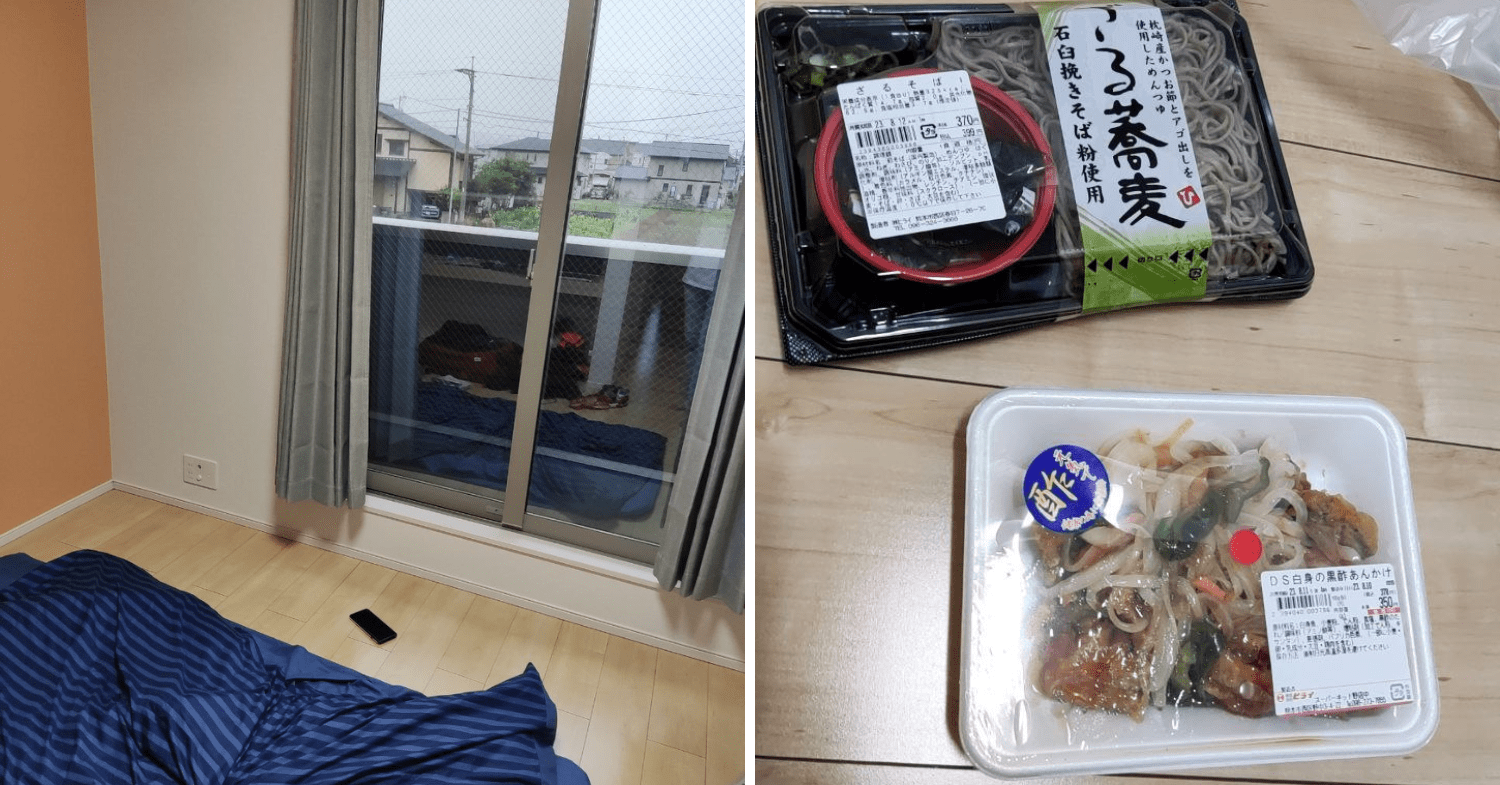 He also got well-acquainted with the comfort of an air mattress for quite a while before getting a bed.
He also got well-acquainted with the comfort of an air mattress for quite a while before getting a bed.
Image adapted from: Johnson Tan
Of course, the apartment did not come furnished, so Johnson had to start decking his abode out piece by piece. “I had to eat my food on the floor because I didn’t have an actual table, and I didn’t have Wi-Fi till 4 months in,” he remarked.
Initially, he wasn’t doing too hot on the psychological front too. “I think not being able to see your friends and family is a big issue too obviously, because you don’t know anyone when you come to Japan,” Johnson admitted. “There was one day where I was so dazed and tired from work, that I just came home and sat in my apartment for 1 hour staring into nothing.”
Spending free time exploring Japan
It took him a good 5 months to finally settle down, but once he got into the rhythm of things, he could finally take in all Japan had to offer. For starters, he began attending weekly badminton sessions with a local group in his prefecture to unwind after work. It gave him something to look forward to each week, and also proved to be a great form of exercise that kept him fit.

A snap Johnson took while he was hiking Japan’s largest active volcano, Mount Aso.
Image credit: Johnson Tan
Getting to explore Japan was also part of what drew Johnson to pursue a career in the country. “I try to explore Japan, bit by bit, whenever I have time during the holidays or by taking short weekend trips,” Johnson said. “I definitely wanna visit parts like Hokkaido and Okinawa, but so far I’ve been to Fukuoka, Miyazaki, and Nagasaki.”

Image credit: @nippon_cycling_trip via Instagram
Last month, he set aside time to conquer the 70km long Shimanami Kaido cycling route, which saw him pedalling across highways that connected islands between Hiroshima and Imabari. This trip was particularly special for him, as he always wanted to try his hand at this cycling route after seeing Abroad In Japan do it a few years back.
What’s more, for Johnson, working in Japan does not seem to dampen the excitement of embarking on these mini vacations. In his words, “Japan’s still so big compared to Singapore, when you go to a different part of Japan, everything is new from the food to the scenery.”
Working in Japan as an ALT in a Japanese school
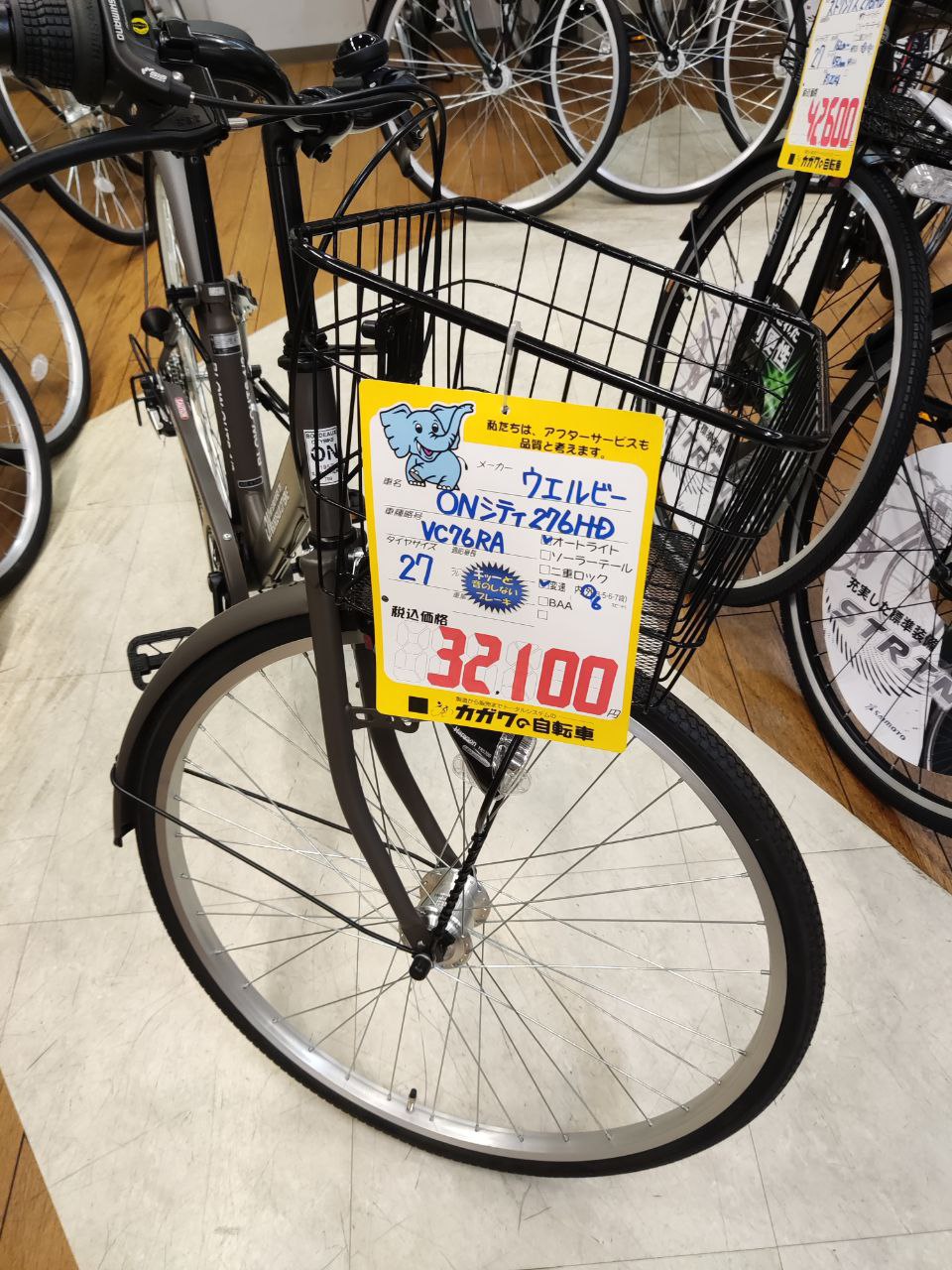
The trusty bike Johnson rides to school every day; he forgoes public transport as the furthest one he teaches at is only a 15-minute bicycle ride away.
Image credit: Johnson Tan
Of course, when it’s time to hunker down and get some work done, Johnson isn’t one to shirk from his responsibilities as an ALT. He gets up around 7.30am, and hops on his bike to cycle to work at the various schools he teaches at. He reaches the school around 8am, and helps out around the classroom till school ends around 3.30pm.
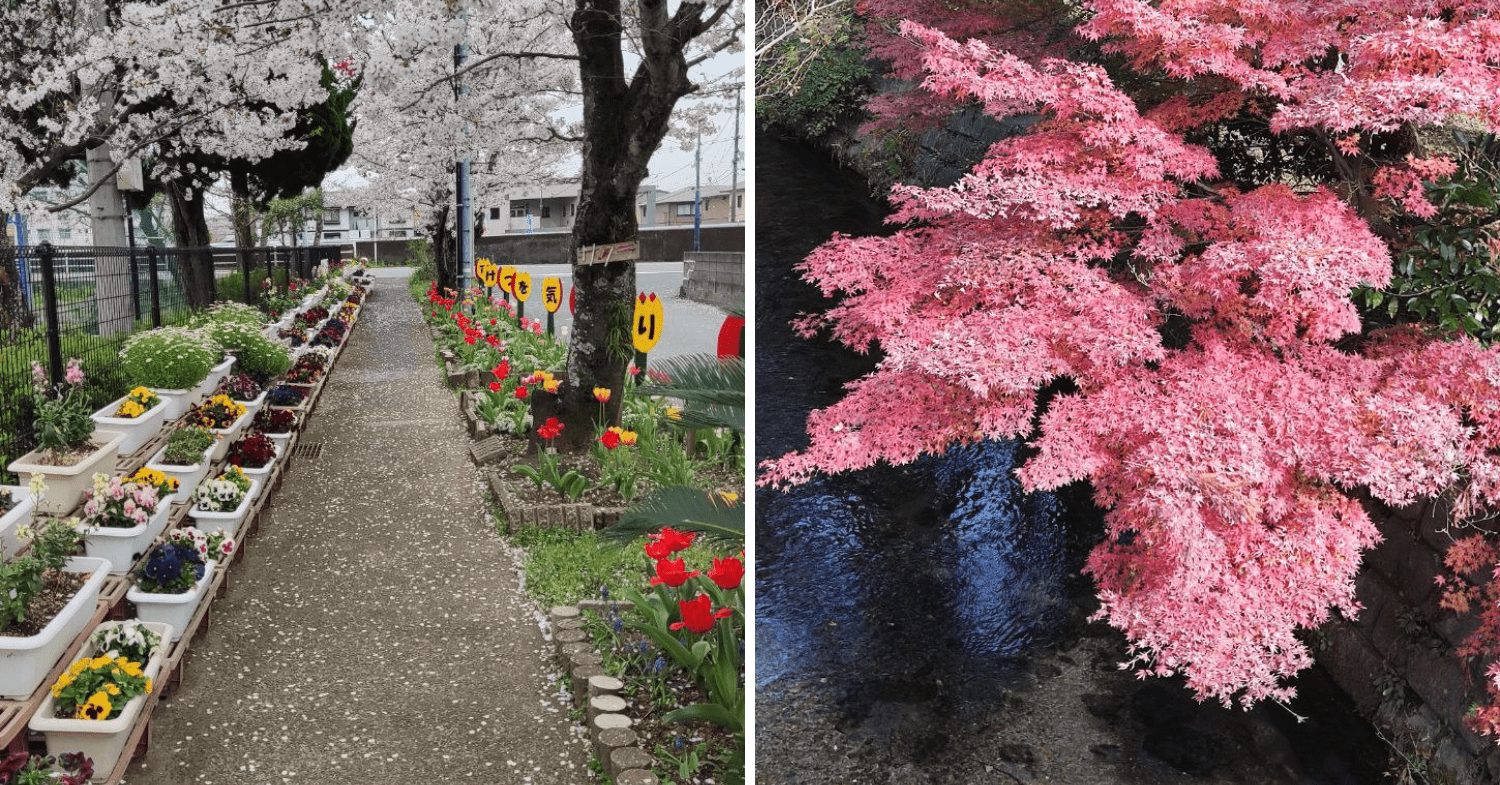 Johnson’s view on his way to work.
Johnson’s view on his way to work.
Image adapted from: Johnson Tan
Although he plays a supporting role in the classroom, he goes the extra mile to make his students’ days all the more meaningful. He started a weekly English club alongside his fellow ALTs, where students can head to after school should they want to improve their English in a more casual environment.
“I know for some kids, it’s not very fun learning English from the textbooks because it’s all about grammar, but some kids just want to speak the language, and others want to have fun picking it up,” said Johnson. As such, he organises classes where his students can ask questions about English in an informal setting, while taking part in games to liven things up.
Of course, there would be differences between schools in Singapore and Japan, and Johnson’s time working in Japanese schools so far has been eye-opening. For instance, he was puzzled when he observed students taking off their socks for a particular class. Turns out, they were being taught how to do their laundry.
“Imagine having a lesson about washing socks, doing laundry. I think that’s interesting, it’s like a life skill,” he noted.
Overall thoughts on living and working in Japan
Having spent the past 2 years living and working in Japan, Johnson has undoubtedly learnt a lot about living on his own on foreign soil.
 Image for illustrative purposes only.
Image for illustrative purposes only.
Particularly, it’s the minute, yet nitty gritty that people don’t think about when relocating to a different country. He recounts his difficulties in opening a bank account, or setting up his home’s Wi-Fi. “Everything is in Japanese and even though I speak the language, when I tried doing these myself it was so difficult. You feel like a baby, like you’re an adult but you can’t do anything yourself.”
Interacting with his colleagues also went a little differently than what he was used to back home. “Singaporeans are more direct when you say stuff, but Japanese people are very indirect, and less confrontational,” he observed. “When they want me to do something, they would ask my supervisor when they could ask me directly, which is a bit roundabout so that’s something I noticed.”
As such, one thing Johnson recommends for those who’d like to relocate to Japan for work, is to at least pick up basic Japanese, to facilitate better communication.
“Just come in with the expectation that no one speaks English,” he advised. “You don’t realise it in Singapore as everyone speaks a common language, but here, if you don’t speak the language you can’t express yourself clearly and that can be frustrating, especially when it comes to work.”

But, don’t let this deter you from stepping out of your comfort zone in search of a new lease of life, as Johnson has done. Especially for those looking to apply for the JET Programme, he believes that the positives trump the negatives, as you get a sense of unbounded freedom to explore Japan, to pick up a new language, and to immerse yourself in a different culture.
With that said, Johnson leaves us with some parting words. “You have to be prepared, but I encourage anyone who’s thinking of doing it to go for it. I don’t think you’ll ever regret it, I know I didn’t.”
The reality of working in Japan
Johnson still has a couple of things on his bucket list he would like to check off during his stay in Japan. This includes sitting for the Japanese-Language Proficiency Test, and attending his favourite singers’ live concerts, so he still has some unfinished business to tend to before we welcome him back at Changi Airport.
In the meantime, if his overseas escapades have enticed you, here are the best times to visit Japan so you can plan your ALs accordingly, and you’ll want to bookmark this Japan transport guide for when you’re actually there. Also, should you be keen to work in another country like Johnson, consider these countries with digital nomad visas for a breath of fresh air.
Cover image adapted from: @nippon_cycling_trip via Instagram, Johnson Tan
